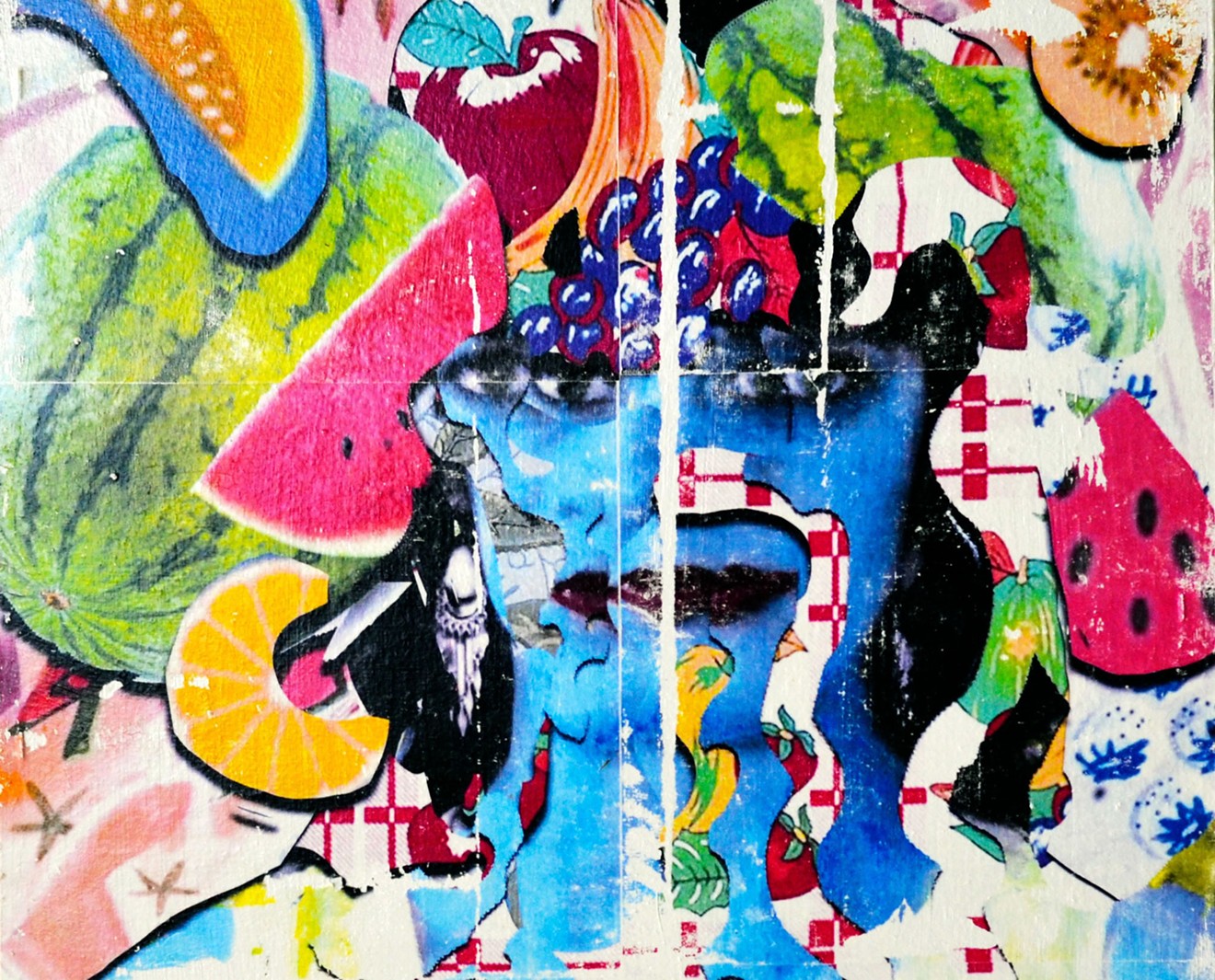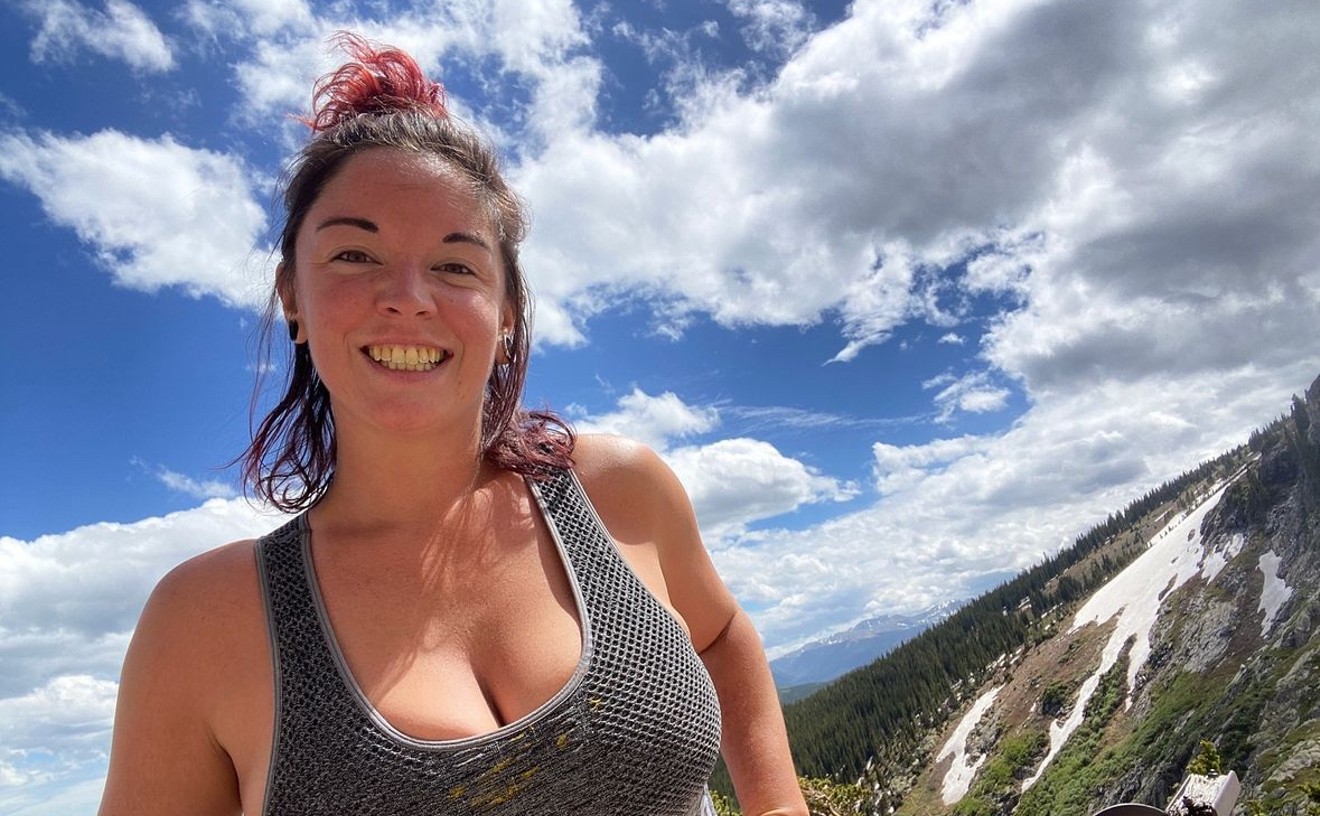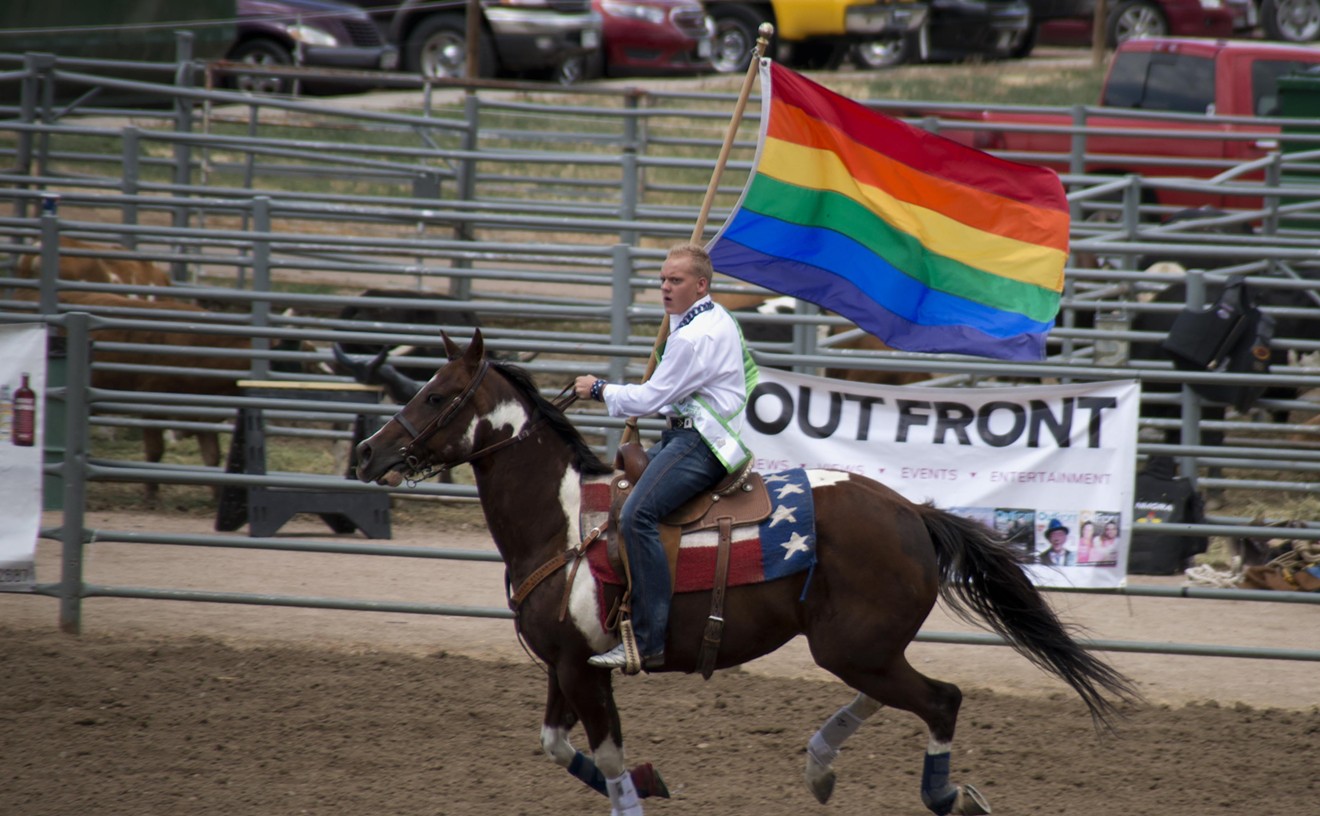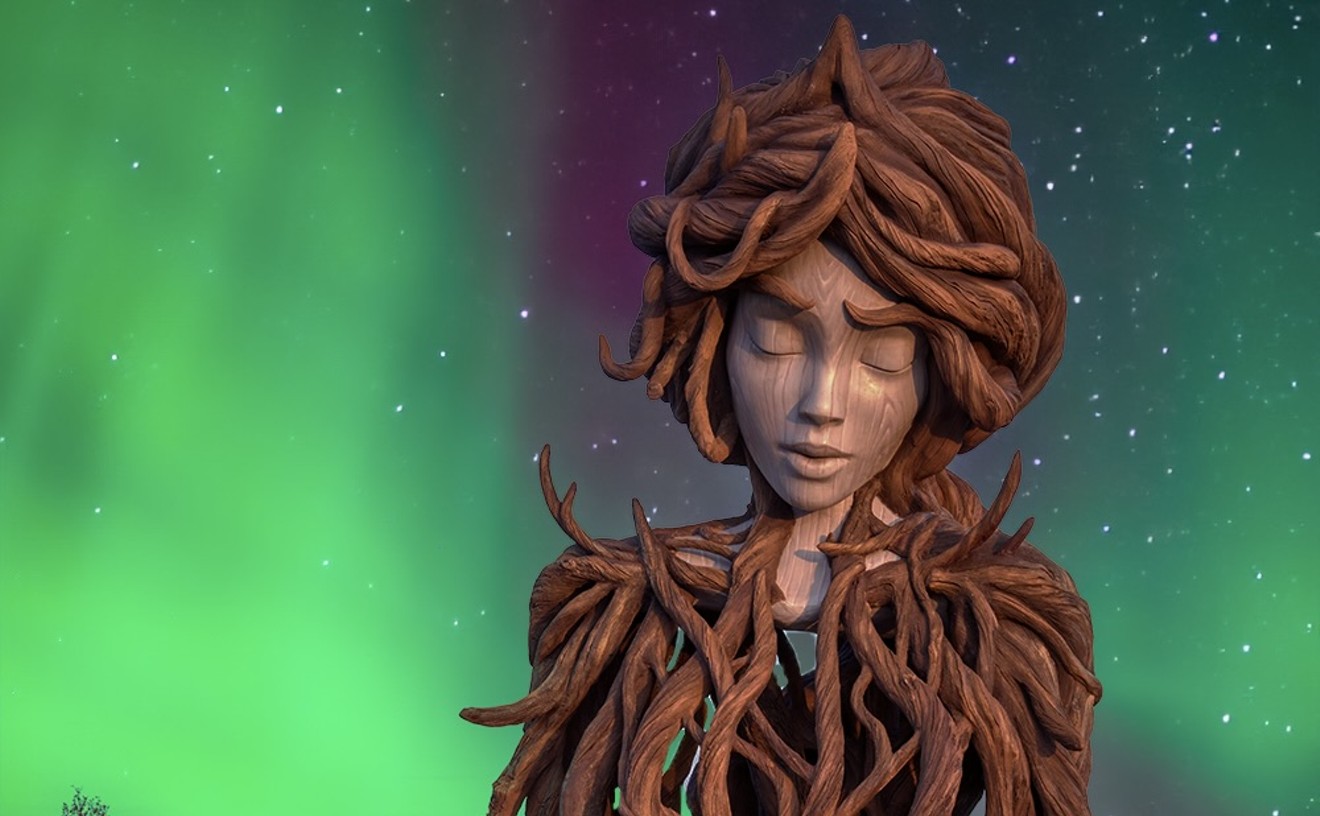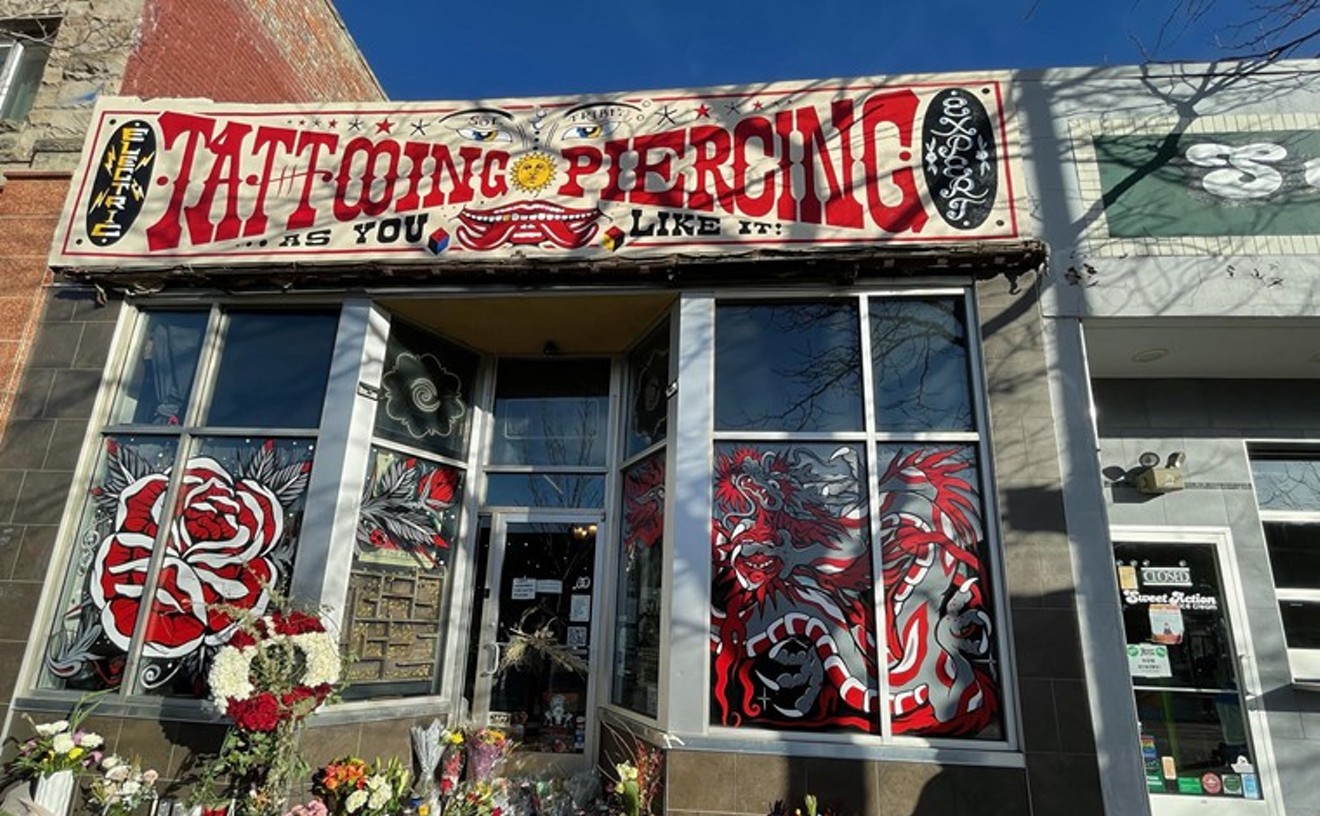The show is driven by an underlying theme of the ersatz mystique: the bells and whistles that go off in our heads when we step into Disneyland or, closer to home, the shlock-palace Casa Bonita. How Yumi began to weave an imaginary land and culture based on fakery is a story in itself.
It all started with a fascination for Brazil, says Yumi, whose preoccupation with the country, which by all appearances looks to the world like a tropical paradise, grew into an obsession. He knew through following Brazilian news, politics and culture that there were more than a few holes in that theory, from the favelas of Sao Paulo to a government in upheaval, leaning to the far right.
"It’s all about a fictitious country I created called Fruitland,” Yumi explains. “I essentially began the project after going to Brazil with my wife. While I was there, I got to talk with artists about how Americans love fake things.” But as he walked around Sao Paulo, he began to notice that Brazilians have their own versions of glorified fakery, too. (Think the monumental Cristo Redentor art-deco statue that looms over Rio, or Brazil’s modernist, utopian capital city of Brasilia.)
“It dawned on me to take these exaggerated, erroneous views of Brazil and fetishize the culture,” he adds, pointing to the invention of Fruitland, a promised land in danger of succumbing to what he calls the Autonation Dictatorship, a dangerously nationalist regime vying for control.
Yumi was particularly interested in creating a cultural scene for Fruitland, informed by actual Brazilian arts movements, such as the late-’60s Tropicália musical aesthetic exemplified by bands like Os Mutantes and musicians Gal Costa, Gilberto Gil, Caetano Veloso and Tom Zé, who sang out in politically charged response to Brazil’s military dictatorship of the time — a regime not unlike Autonation’s.
To go with his fictitious country, Yumi took a MacGregor-style move and created a “group of fake artists who made all the art in the show.” Pop-arty artists with sarcastic and pilfered names like Pedro Maximo and Sandor 21 began to show up with fake mustaches in Yumi’s studio, a charade recorded on social media, each with his or her own personality and style.
In addition, Yumi created the society and religion of Fruitland, inviting local artists and friends to his studio (aka Yumicorp International Studios) to pose as the rulers, artists, society, and gods and goddesses of the imaginary nation. Throughout this process, Yumi continued his ongoing tongue-in-cheek documentation of the developing project using social-media platforms.
Therefore, the art is all online at the same time it hangs in the gallery, inviting a critical look at the Internet as a fantasy world in its own right. “There’s so much fake stuff on the Internet, you don't know what’s real, and I wanted to make a mockery of that,” Yumi says. “Putting it online opens up a performative aspect of work, which is crucial for me.” The online work then becomes as integral to the process as the actual work itself.

Autonation's richest man, JP Big Bucks – the man, the myth, the legend, and owner of NIPA Autoparts, the largest chain of auto-parts/bridal shower stores in all of Autonation.
Courtesy of Peter Yumi
Similar rules even dictated the color palette of Fruitland. “I used Gucci style as a color guide, and I also followed other hard and fast rules to create this universe,” Yumi reveals. “Fruitlandians don't exploit animals, so there are almost no animals in the work. Fruitlandian people also don’t believe in painting portraits full-face — gods and goddesses are the only ones portrayed facing forward — so many of the images are fractured and broken up.”
In Fruitland, Bob Dylan, an artist with a decades-old mystique, has lyrics that work their way into the artwork. Dylan is a cultural figurehead, “not a deity, but a messianic figure” in Yumi’s imaginary world, exemplified by Dylan’s admonition to “get born,” pilfered from the song "Subterranean Homesick Blues.”

Edward Richman, one of Autonation's wealthiest men and the author of the best-selling book Real Men Don't Eat Cheetos.
Courtesy of Peter Yumi
In the meantime, Yumi can’t contain his excitement, and yearns to remind people that our views of other cultures can be skewed and off-kilter, and that humor conquers all. But Yumi has high hopes: “In a world that’s so dark right now, we can all use a little bit of light and beauty in the world.”
Intrigued? Yumi says Fruitland Contemporary Art During the Autonation Dictatorship is only the first cog in a series of projected Fruitland exhibitions, with the second show set to debut at Pirate in 2020. Let the great swindle begin.

